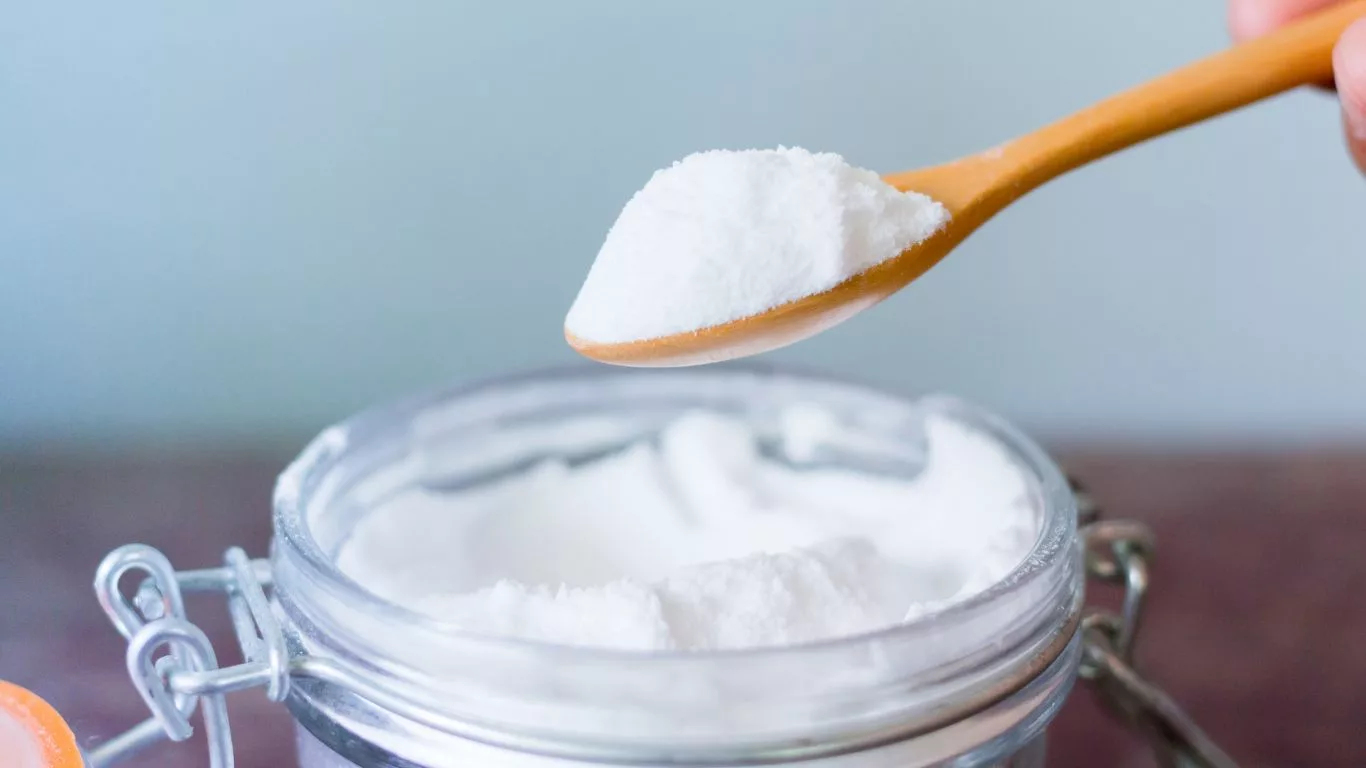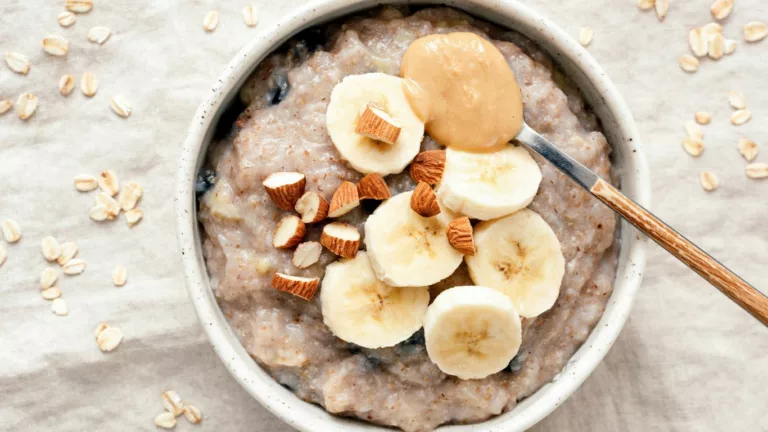Baking Soda for Heartburn Relief: Does This Natural Fix Work?
If you’ve ever found yourself scrambling to the kitchen in the middle of the night with that familiar burning feeling creeping up your throat, you’re not alone. As someone who’s dealt with GERD for over a decade, I’ve tried everything—from pricey antacids to herbal teas—and yes, even that old-school remedy sitting quietly in your pantry: baking soda. You’ve probably heard mixed things about it, and I’m here to walk you through exactly how it works (or doesn’t), how to take it safely, and what to expect if you’re giving it a shot for heartburn relief.
How Baking Soda Actually Works for Heartburn

Baking soda, or sodium bicarbonate, is a naturally alkaline compound that works by neutralizing excess stomach acid. It’s not just a kitchen staple—it’s also been used for decades as an over-the-counter antacid. When mixed with water and consumed, it reacts with hydrochloric acid in your stomach to form salt, water, and carbon dioxide. This reaction temporarily relieves the burning sensation that many of us associate with acid reflux and GERD.
So yes, baking soda can work—but before you start scooping spoonfuls into a glass, let’s talk about what you need to know.
Proper Dosage: How Much Is Safe to Take?

Here’s the thing—just because something is natural doesn’t mean you can go wild with it. I learned this the hard way in my early 20s when I tried a full tablespoon out of desperation. Bad idea. Too much baking soda can mess with your electrolyte balance and even lead to alkalosis.
Recommended Dosage
- Standard adult dose: ½ teaspoon of baking soda in 4 ounces of water
- Frequency: No more than every 2 hours
- Maximum daily limit: 7 doses (3½ teaspoons total) in 24 hours
- For people over 60: No more than 3 doses per day
Make sure you completely dissolve the baking soda in water before drinking. Don’t take it on a full stomach, and avoid lying down immediately afterward—it can increase the chances of acid creeping back up.
According to the Mayo Clinic, this dosage guideline is crucial for avoiding unwanted side effects like gas, bloating, or worse—sodium overload.
Does Baking Soda Actually Work for GERD?

In the short term? Yes. It’s honestly helped me during those unexpected flare-ups when I’ve been out of meds or traveling. The reaction starts fast—within minutes—and it really does tame the burning. However, it’s not a long-term fix.
GERD is a chronic condition, and baking soda doesn’t address the underlying issue: a weak lower esophageal sphincter (LES) or frequent acid backflow. If you’re depending on it more than once or twice a week, it’s a sign you need to look deeper into your symptoms.
Studies have shown that while baking soda provides rapid acid neutralization, it does nothing to prevent rebound acid production. This is one of the reasons it’s best used for occasional relief, not as a daily go-to.
And if your symptoms involve silent reflux, baking soda may not be enough—those cases often need lifestyle overhauls or more targeted therapies.
Risks and Side Effects: Know Before You Swallow

Here’s where most folks get caught off guard. While it’s great in a pinch, baking soda is high in sodium—1/2 teaspoon contains around 630 mg of sodium. If you’re on a low-sodium diet, have high blood pressure, kidney issues, or heart problems, this could be risky.
Potential Side Effects:
- Gas and bloating (from CO₂ release)
- Nausea or stomach cramps
- High blood pressure (from sodium overload)
- Electrolyte imbalance if overused
- Metabolic alkalosis (a serious condition from excessive use)
There have even been rare cases where overuse of baking soda has caused gastric rupture due to the rapid release of gas in a full stomach. Sounds extreme, but it underscores the importance of moderation.
If you experience symptoms like persistent bloating, nausea, or fatigue after using baking soda, it’s time to hit pause and talk to a doctor.
When Should You Use Baking Soda—and When Should You Avoid It?

I keep a small container in my kitchen cabinet as an “emergency-only” fix—like when I’ve indulged in something I know I shouldn’t have (hello, spicy noodles). But here’s a general guideline to follow:
Use it if:
- You experience occasional heartburn
- You need fast relief and don’t have access to antacids
- Your symptoms are mild and infrequent
Avoid it if:
- You have chronic GERD or use it daily
- You’re on a sodium-restricted diet
- You have kidney, liver, or cardiovascular issues
- You’re pregnant, unless cleared by a doctor
Looking for more sustainable strategies? You might find this GERD diet plan a useful place to start building long-term digestive health.
For more natural approaches beyond baking soda, this breakdown of natural GERD remedies might be worth exploring.
Comparing Baking Soda with Other Heartburn Remedies

If you’ve ever browsed the antacid aisle at 10 PM in your pajamas, you already know—options are endless. From chewables to PPIs, how does baking soda stack up? Short answer: it’s fast, cheap, and accessible—but it’s also not without drawbacks.
Let’s break it down:
| Remedy | Onset | Duration | Pros | Cons |
|---|---|---|---|---|
| Baking Soda | 2–5 minutes | 30–60 minutes | Fast relief, pantry staple | High sodium, not long-term |
| Antacids (e.g., Tums) | 5–10 minutes | 1–2 hours | Widely available, convenient | Can cause constipation |
| H2 Blockers (e.g., Pepcid) | 30 minutes | Up to 12 hours | Prevents acid production | Slow onset, interactions |
| PPIs (e.g., omeprazole) | 1–2 hours (daily use) | 24+ hours | Best for chronic GERD | Requires consistent use, long-term side effects |
Personally, I rotate based on what I need. If I’ve had a heavy meal and need fast relief, baking soda does the job. But if I’m bracing for a stressful day (which always triggers my reflux), I go with an H2 blocker or my usual PPI.
For those exploring more targeted options, check out this guide on GERD treatments—it breaks down pros, cons, and real-world strategies that work.
Smart Ways to Use Baking Soda Without Risk

Let’s be real: we’re not all chemists. But using baking soda safely really comes down to respecting the dose and not overdoing it. Here’s what I’ve learned through trial, error, and a few too many fizzy burps.
Best Practices:
- Stick to ½ teaspoon per dose, dissolved in 4 oz of cold water.
- Drink it slowly to avoid bloating from gas buildup.
- Wait at least 1 hour after eating a full meal before taking it.
- Don’t exceed 3–7 doses in a day (depending on age and health).
- Avoid lying down for at least 30 minutes after drinking it.
I usually stir mine into a wide-mouthed glass and sip it while standing. Sounds overly specific, but trust me, posture matters—a slouched stomach is a reflux magnet.
If you’re managing multiple triggers, you might want to read this breakdown on lifestyle changes that actually help with GERD. Combining remedies with mindful habits has made a huge difference in my own routine.
Who Should Never Use Baking Soda for Heartburn?

Baking soda is generally safe for healthy adults, but it’s absolutely not a fit for everyone. Here are the groups that should stay away or talk to a doctor first:
- People with high blood pressure or sodium-restricted diets
- Individuals with kidney disease (baking soda can affect electrolyte balance)
- Heart failure patients—fluid retention from sodium is risky
- Pregnant women—only under medical supervision
- Children under 12—not recommended without doctor approval
If you’re unsure whether it’s safe for you, start with this trusted overview from Cleveland Clinic that explains the full scope of risks and when to avoid it entirely.
Real-Life Experience: My Hits and Misses

When I first tried baking soda, I was skeptical. It felt too old-fashioned. But after a greasy street food binge on vacation left me with no access to meds, I gave it a go. The result? Almost instant relief—and a loud burp (no one warned me about that).
Since then, I’ve kept it in my kitchen and travel bag. But there were times I overused it—thinking natural meant harmless—and ended up with serious bloating and dizziness. That was my wake-up call to use it as an emergency tool, not a regular fix.
Here’s how I personally use it today:
- 1–2 times a month max, when antacids aren’t around
- Mixed with cool water, never on a full stomach
- Always follow with a tall glass of plain water to flush excess sodium
It’s also great for people looking to explore fast-acting natural options before committing to daily meds. Just know your limits and listen to your body. I didn’t at first, and I paid for it with a few rough nights.
More Natural Remedies to Explore

While baking soda gets the spotlight here, it’s far from the only thing in your pantry that can soothe the burn. If you’re into natural options (I am!), you might consider rotating in these alternatives:
Other Options That Have Helped Me:
- Ginger tea – Great for calming the gut and easing nausea
- Raw honey – A teaspoon before bed really soothed my nighttime symptoms
- Aloe vera juice – Cooling and smooth, though you need the decolorized version
- Slippery elm – A bit goopy, but coats the esophagus well
- Avoid peppermint – It can relax the LES and worsen reflux for some (like me)
For a broader view of what nature has to offer, this in-depth guide to natural GERD relief might help you figure out what fits your style and sensitivity level.
Long-Term Relief: Why Baking Soda Isn’t a Permanent Fix

As useful as baking soda is in a pinch, it’s not something I—or any health expert—would recommend as your main line of defense. In fact, leaning on it too often can create more problems than it solves. It’s a band-aid, not a cure.
I made that mistake early on. I’d reach for it after every big meal, thinking I was being “natural” and avoiding meds. But my symptoms got worse over time—more bloating, more discomfort, and eventually I was back at the doctor’s office.
The truth is, heartburn is usually a sign of a deeper imbalance: weak lower esophageal sphincter (LES), dietary triggers, or pressure in the stomach. Baking soda only neutralizes acid temporarily. It doesn’t stop reflux or fix underlying issues like GERD-related palpitations or throat discomfort.
If you’re relying on it more than once or twice a week, that’s a red flag. At that point, it’s worth reassessing your treatment plan and looking into more sustainable strategies like:
- Identifying and avoiding trigger foods
- Adjusting meal timing and portion size
- Incorporating safe, low-acid meals—see our GERD Diet Plan
- Elevating your head during sleep
- Using doctor-approved medication when necessary
Also—don’t underestimate the power of consistency. In my case, small daily habits (like cutting out late-night snacks) did more for my reflux than any emergency remedy ever could.
When to See a Doctor About Heartburn

One of the easiest mistakes to make is assuming heartburn is always harmless. It’s easy to dismiss symptoms—especially if you’ve been managing with DIY tricks like baking soda. But chronic acid reflux can lead to serious complications if untreated.
If any of the following apply to you, it’s time to get professional input:
- Heartburn more than twice a week
- Trouble swallowing or persistent throat clearing
- Chest pain that mimics a heart attack
- Unexplained weight loss or appetite changes
- Symptoms persisting despite home treatment
In my own journey, I waited far too long to see a gastroenterologist—hoping natural fixes would be enough. I wish I’d gone sooner. Getting a scope done gave me clarity and helped rule out more serious issues like Barrett’s esophagus.
To understand the deeper risks of untreated GERD, check this guide on GERD complications.
Final Tips for Using Baking Soda Responsibly

If you’re still considering using baking soda for heartburn now and then, here are my tried-and-true rules to stay safe:
- Use it only occasionally—not as a daily solution
- Measure carefully—½ tsp per 4 oz water is enough
- Never exceed 7 doses in 24 hours (3 doses if over 60)
- Avoid full stomachs—wait 1–2 hours after meals
- Don’t mix with acidic juices like lemon or vinegar (no DIY volcanos!)
- If symptoms worsen, stop immediately and seek medical help
It’s also a good idea to write down when and how often you use it—just a simple note in your phone can reveal patterns you might not notice otherwise. That helped me realize my reflux was worse on high-stress days (and after pizza nights, let’s be honest).
And if you’re exploring lifestyle changes to reduce symptoms long-term, make sure to read our full lifestyle change guide for GERD.
What Science and Experts Say

Most mainstream health experts—including sources like Mayo Clinic and the Cleveland Clinic—agree: baking soda can relieve occasional heartburn, but it’s not a cure and shouldn’t be your go-to solution for chronic reflux.
It’s considered safe when used sparingly and with the right dosage. But they’re also clear on this: frequent heartburn signals a deeper issue that needs diagnosis and possibly long-term treatment.
So while baking soda may earn a spot in your GERD “emergency kit,” think of it like you would a bandage—it helps the symptom, not the root cause. For those who need to go deeper into managing their condition, the main resource I recommend is this comprehensive guide on GERD symptoms and when to act.
Managing GERD takes time, trial, and patience. Baking soda might help get you through the bad nights—but healing your gut and reducing flare-ups long term will take more than a kitchen remedy. You’ve got options. Start where you are—and build from there.

Camellia Wulansari is a dedicated Medical Assistant at a local clinic and a passionate health writer at Healthusias.com. With years of hands-on experience in patient care and a deep interest in preventive medicine, she bridges the gap between clinical knowledge and accessible health information. Camellia specializes in writing about digestive health, chronic conditions like GERD and hypertension, respiratory issues, and autoimmune diseases, aiming to empower readers with practical, easy-to-understand insights. When she’s not assisting patients or writing, you’ll find her enjoying quiet mornings with coffee and a medical journal in hand—or jamming to her favorite metal band, Lamb of God.







